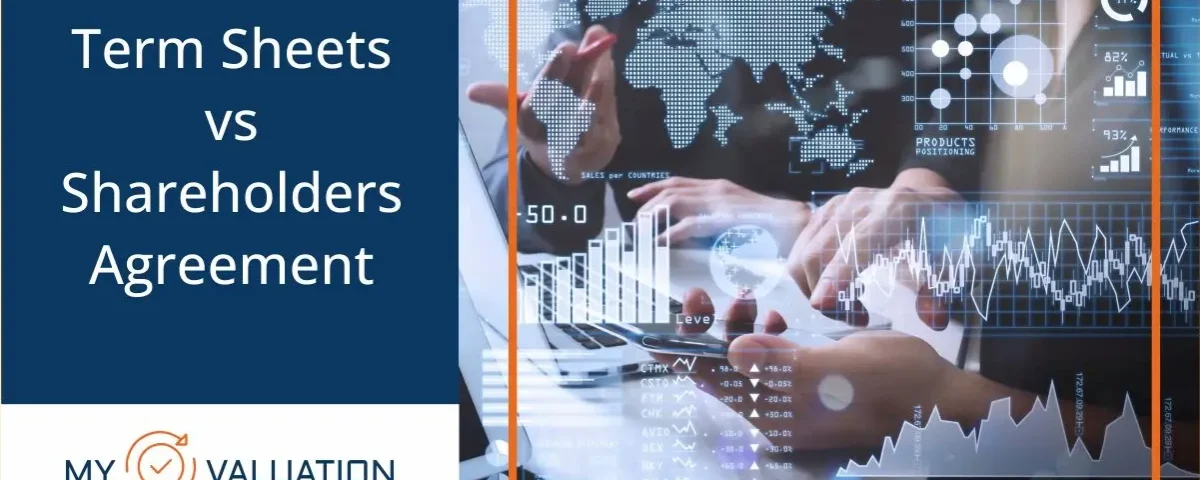As a business startup in India, you may have come across the terms “Term Sheet” and “Shareholders Agreement.” While both are important legal documents that play a significant role in the growth and success of a startup, they serve different purposes. In this blog post, we will explore the key differences between Term Sheets and Shareholders Agreements for business startups valuation in India.
A Term Sheet is a preliminary agreement that outlines the terms and conditions of a potential investment in a startup. It is a non-binding document that sets out the basic framework of a deal, including the amount of investment, the valuation of the company, the rights and obligations of the parties involved, and the conditions for closing the deal.
A Term Sheet is usually negotiated between the startup and the potential investor(s) before a formal agreement is reached. It is meant to serve as a guide for further negotiations and to ensure that both parties are on the same page before moving forward with the investment.
A Shareholders Agreement, on the other hand, is a binding contract between the shareholders of a company. It outlines the rights and obligations of the shareholders, the management and governance of the company, and the procedures for resolving disputes and making important decisions.
A Shareholders Agreement typically covers a wide range of topics, including the appointment and removal of directors, the issuance of new shares, the transfer of shares, the payment of dividends, and the protection of minority shareholders’ rights.
Key Differences between Term Sheets and Shareholders Agreements for Business Startups in India
- Binding Non-Binding: The most significant difference between a Term Sheet and a Shareholders Agreement is that the former is non-binding, while the latter is a legally binding contract. A Term Sheet is an expression of intent, whereas a Shareholders Agreement creates legally enforceable obligations.
- Timing: A Term Sheet is usually prepared during the early stages of negotiations, before the investment is A Shareholders Agreement, on the other hand, is typically prepared after the investment has been made and the shareholders have been identified.
- Scope: While a Term Sheet focuses on the key terms and conditions of the investment, a Shareholders Agreement is a comprehensive document that covers a wide range of topics related to the management and governance of the
- Flexibility: A Term Sheet is a flexible document that can be easily revised or amended during negotiations. A Shareholders Agreement, on the other hand, is a more rigid document that can be difficult to change once it has been
- Specificity: A Term Sheet is a broad document that sets out the general terms and conditions of the A Shareholders Agreement, on the other hand, is a specific document that outlines the rights and obligations of the shareholders in detail.
- Cost: Because a Shareholders Agreement is a legally binding document, it typically requires more legal fees and expenses to prepare and execute than a Term This can be a consideration for startups that may be operating on a tight budget.
- Complexity: A Shareholders Agreement is typically a more complex document than a Term Sheet, as it covers a wide range of topics and can involve multiple parties with different interests. This complexity can make it more challenging to negotiate and execute than a Term
- Legal Consequences: While a Term Sheet is non-binding, it can still have legal consequences if it contains misleading or inaccurate In some cases, a party may be able to sue for damages if they relied on the representations in a Term Sheet that were later found to be untrue. A Shareholders Agreement, on the other hand, is a legally binding contract and can be enforced through legal action if one of the parties breaches the terms of the agreement.
- Investor Relations: Because a Term Sheet is typically negotiated between the startup and the potential investor(s), it can be an important tool for building a positive relationship with those By demonstrating that you understand their needs and interests, and by working collaboratively to negotiate the terms of the investment, you can establish a strong foundation for future interactions. A Shareholders Agreement, on the other hand, is focused primarily on the relationship between the shareholders themselves, and may not be as directly relevant to building investor relations.
Conclusion
In summary, a Term Sheet and a Shareholders Agreement are two distinct legal documents that serve different purposes in the growth and success of a business startup in India. While a Term Sheet is a
non-binding document that outlines the basic terms and conditions of a potential investment, a Shareholders Agreement is a binding contract that sets out the rights and obligations of the shareholders and the procedures for the management and governance of the company.
As a business startup, it is important to understand the differences between these two documents and to seek the advice of legal professionals before entering into any agreements. By doing so, you can ensure that your interests are protected and that you are well-positioned for success in the Indian business landscape.
For more in-depth knowledge and help about the valuation methods of your business and guidance on the valuation of your start-up or business, contact us now or Visit our site to learn more about our valuation services and other aspect of start-up valuation: https://myvaluation.in




